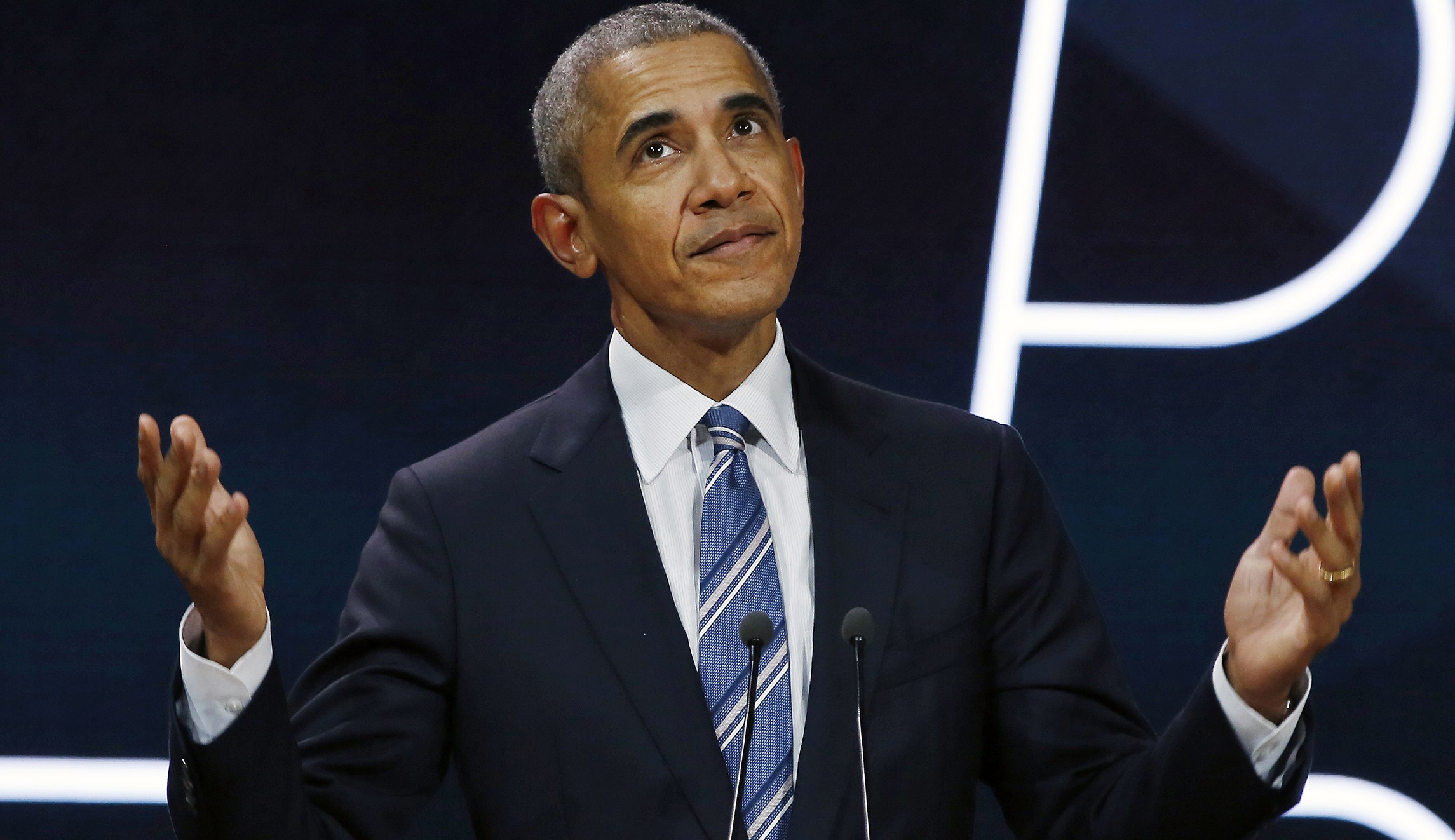The Limits of Presidential Self Criticism
“What if we were wrong?”
That’s a statement from President Obama in the days following the election of Donald Trump, as reported in what looks like a fascinating new book by Benjamin Rhodes, a longtime advisor to the former president. The book is reported to be a coming to terms, a much-needed reckoning, a dust-settling account of how so many could have been so spectacularly wrong.
The statement itself sounds promising.
Maybe he had begun to rethink the remarkable disaster created by the Affordable Care Act that caused soaring health insurance premiums and deductibles while sending palpable panic through wide swaths of the electorate just weeks before the election? Exit polls showed that concern over health care ranked extremely high among people who flipped traditional party loyalties to support the man who promised (but later did not deliver) a repeal of the whole machinery.
Maybe Obama had his confidence shaken.
The Larger Problem
Even better, perhaps Obama would think about the larger failing. For him and his class of public intellectuals, politicians, advisors, and managerial elites, there was no problem in the world that couldn’t be corrected with the right combinations of carrots and sticks as created through legislation, administrative edict, or some other government intervention.
The idea of just letting things alone to fix themselves, or observing or even celebrating the productive power of freedom, has been essentially inconceivable to this class of people, whose thought on public life has been shaped by an echo chamber of pseudo-scientific theories of public management pushed in academia for most of these last 100 years.
This was the approach they used for eight full years following the financial crisis of 2008, and the results were a long period of economic stagnation that was so persistent that 2% growth came to be seen as blessed economic recovery. During this entire period of time, there was no loosening of control, no encouragement of enterprise or innovation but quite the opposite.
Regulatory control over every domestic sector of economic life tightened by the day, and the same theory drove foreign policy decisions in Iraq, Afghanistan, Libya, and Syria. It was a long period in which the prevailing public philosophy was “there is nothing government cannot achieve.”
In so many areas, Obama seemed like an intelligent and thoughtful person, certainly someone who wanted to achieve some good. But even from his earliest extended interviews – however erudite and insightful – it was clear that he had a gigantic blind spot about fundamental economic topics. Most foundationally, the topic of wealth creation was never on this mind. He had great confidence in the capacity of great public administrators to manage economic life from the center but no discernable awareness of the limits of state power.
All the while during his presidency, we also observed the growing arrogance of state/media machinery over cultural, social, and economic matters that previous generations have left to the discretion of society itself. The center left became increasingly aggressive in its enforcement, its preaching, its canon of doctrines for their civic religion that vast numbers of middle-class Americans rejected.
If you disagree with them, you are ignorant or deplorable, said Obama’s appointed successor. Hillary ran without a platform of any substantive sort, falling back continually on the identity politics that came of age in the years of Obama. He personally worked not to fan the flames but his movement was not shy about it. By the end of his second term, the voting demographic had become palpably polarized: men, women, old, young, black, white, native, immigrant, and so on.
All of this nastiness was given a special meaning in the midst of stagnating economic times. Here was the core problem that the Obama administration was not prepared, intellectually or politically, to fix.
The Bursting Bubble
All it took was a compelling public personality to call it all a disaster and demand change to generate one of the great political upsets in modern history. The election of Trump – brought about not because people loved him but because he seemed like the person most determined to make a change – thereby represented a gigantic rebuke to the center left and its presidential spokesman and enforcer.
The irony is that it was Trump, not Obama’s successor, who grabbed the mantle of hope and change.
So perhaps this new book will reveal what happens when a good man, with good intentions, has a crisis of faith and begins to question whether the ideology that undergirded his public life was essentially flawed or fundamentally wrong. Perhaps?
No Luck
Sadly, no. Instead, as reported in the book, Obama saw the entire election as a referendum on progressive aesthetics concerning globalization, inclusion, and neo-liberalism. “Maybe we pushed too far,” Mr. Obama is reported to have said. “Maybe people just want to fall back into their tribe.”
Maureen Dowd sums up this view: the American people are “not enlightened enough for the momentous changes wrought by the smartest people in the world — or even evolved enough for the first African-American president…. We just weren’t ready for his amazing awesomeness.”
There is that core arrogance, to be sure, but there is also a world-view problem here. Obama is still unwilling to face why the revolt against his brand of politics came about in the first place. It’s too convenient to render this as nationalism vs. globalism. No question that it was Trump’s nationalism, and the dog whistling that comes with that, that made the strongest impression on Obama and his cohorts. Trump’s politics extends from his friend/enemy style of politics. For him, it is always and everywhere a struggle to win, which means setting up an us/them binary. Nationalism is especially suited for this political style. The “us” part of the struggle can take one or a combination of demographic features: race, language, religion, geography, and heritage. These themes are migratory and adaptable based on the values of the hearers.
The question that is constantly asked is whether it was this nationalism vs. Obama’s more internationalist or globalist ethos that was the deciding factor in the election. You can run all the regressions based on polling that you want and still the answer is elusive. A deeper analysis observes that economic stagnation, economic fears, rising costs of essentials like health care, a perception of diminished economic opportunity, give rise to the kind of us/them politics that unleashes the very nationalist impulses that Trump pushed.
That is different from concluding with Obama that this is the essential struggle that caused his successor to lose the election. Had the economy been growing rapidly, had the ACA fixed rather than wrecked American health care, had the decade of stagnation never happened, had Obama-era politics avoided the partisan ideological suffocations that alienated so many regular people from civic life, it is highly doubtful that the politics of resentment alone could have swung so many from one party to another. Nationalist thematics of foreign invasion and domestic insurrection – another form of identity politics that fueled the Clinton effort – might never have found an audience.
Not Getting It
I conclude from early reports of this book that Obama – and this goes for the elites in his ideological circle too – have a lot yet to learn about how and why they lost the presidency. Rather than coming to terms with their biggest single failing, they will stick with their preferred narrative that the public was just not yet ready for their type of enlightenment.
Observe now the second-round effects of the failing. The Clinton/Obama/Clinton dynasty is out. And now we are faced with trade war, an immigrant worker shortage, scrambled supply chains in international commerce, authoritarian threats to political dissidents, the politics of censorship and retaliation, and possibly worse.
It’s a toss up which is the most dangerous part of the economic blindness of the center left: the damage it causes on its own or the reactionary forces to which that damage invariably gives rise.











